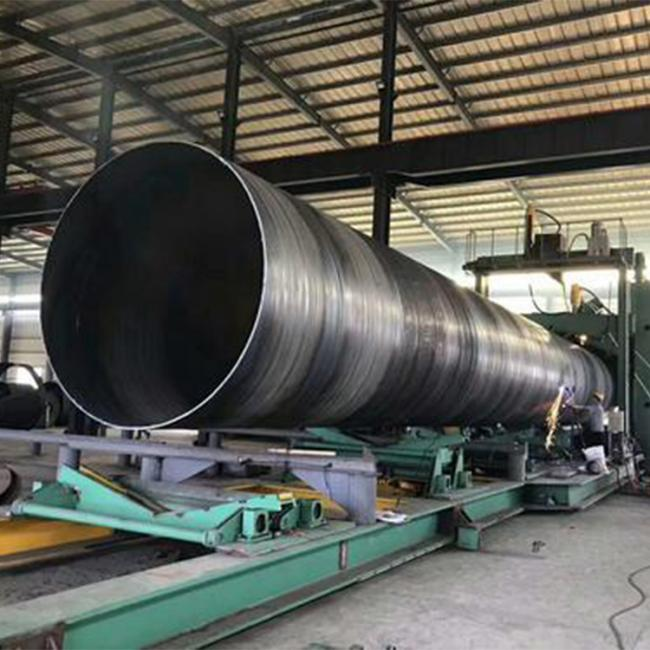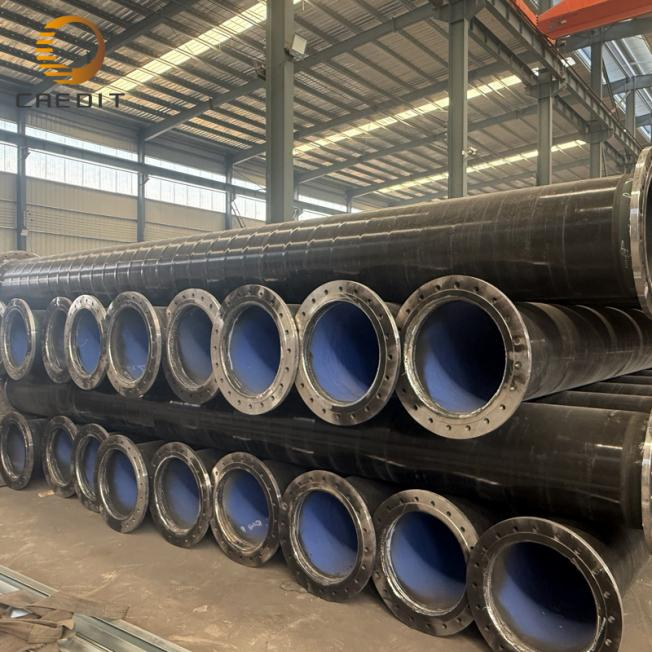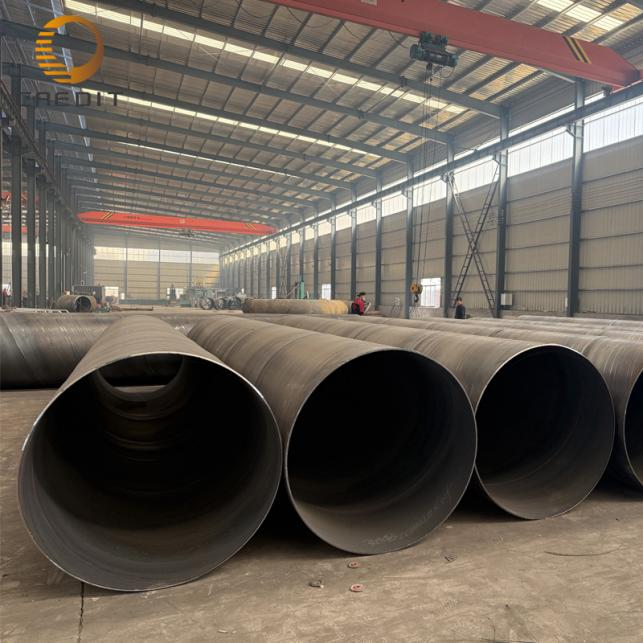Spiral steel pipe is a type of large-diameter steel pipe manufactured using strip steel as raw material, formed and welded in a spiral manner. It is widely used in oil and gas transportation, water conservancy projects, steel structure supports, and municipal pipeline systems. With a mature manufacturing process and effective cost control, spiral pipe demonstrates significant advantages in large-diameter transmission pipelines and construction projects.
In terms of common specifications, the outer diameter of spiral pipes typically ranges from 219mm to 3000mm, with wall thickness reaching over 30mm and lengths generally between 6 and 12 meters. Due to its stable structure and excellent pressure resistance, spiral pipe is often used as a support column or pile in steel structure buildings, playing a critical load-bearing role.
CREDIT

The application scope of SSAW steel pipe is extensive. Besides energy transportation and urban infrastructure, it is also widely used in steel structure bridges, high-rise buildings, and port terminals. To address corrosion issues in complex environments, anti-corrosion treatment is an essential part of the production process. Common anti-corrosion methods include epoxy coal tar coating, 3PE external coating, and hot-dip galvanizing, which significantly enhance the pipe’s durability and service life.
Compared with longitudinally welded pipes, SSAW pipes offer advantages such as lower cost, stable welding, and superior pressure resistance. Driven by increasing market demand, both production capacity and technology continue to improve. In recent years, with the rise of green construction and intelligent pipeline networks, spiral pipes have shown promising prospects in energy saving, environmental protection, and smart manufacturing.

Regarding quality inspection, spiral pipes must undergo rigorous testing before leaving the factory. This includes non-destructive testing (such as ultrasonic testing and X-ray inspection), dimensional checks, strength testing, and adhesion testing of the anti-corrosion layer to ensure compliance with national and industry standards.
Overall, as a vital material in modern engineering, spiral pipe—thanks to its high structural strength, cost efficiency, and excellent anti-corrosion performance—will continue to play a strong role in future infrastructure development and industrial applications.

